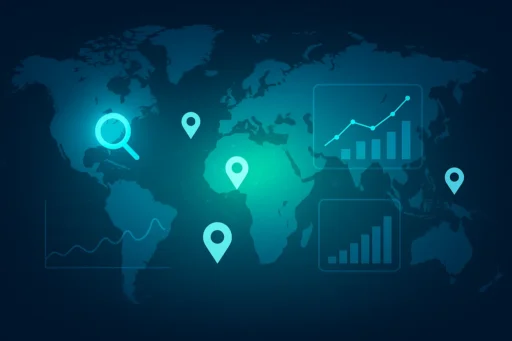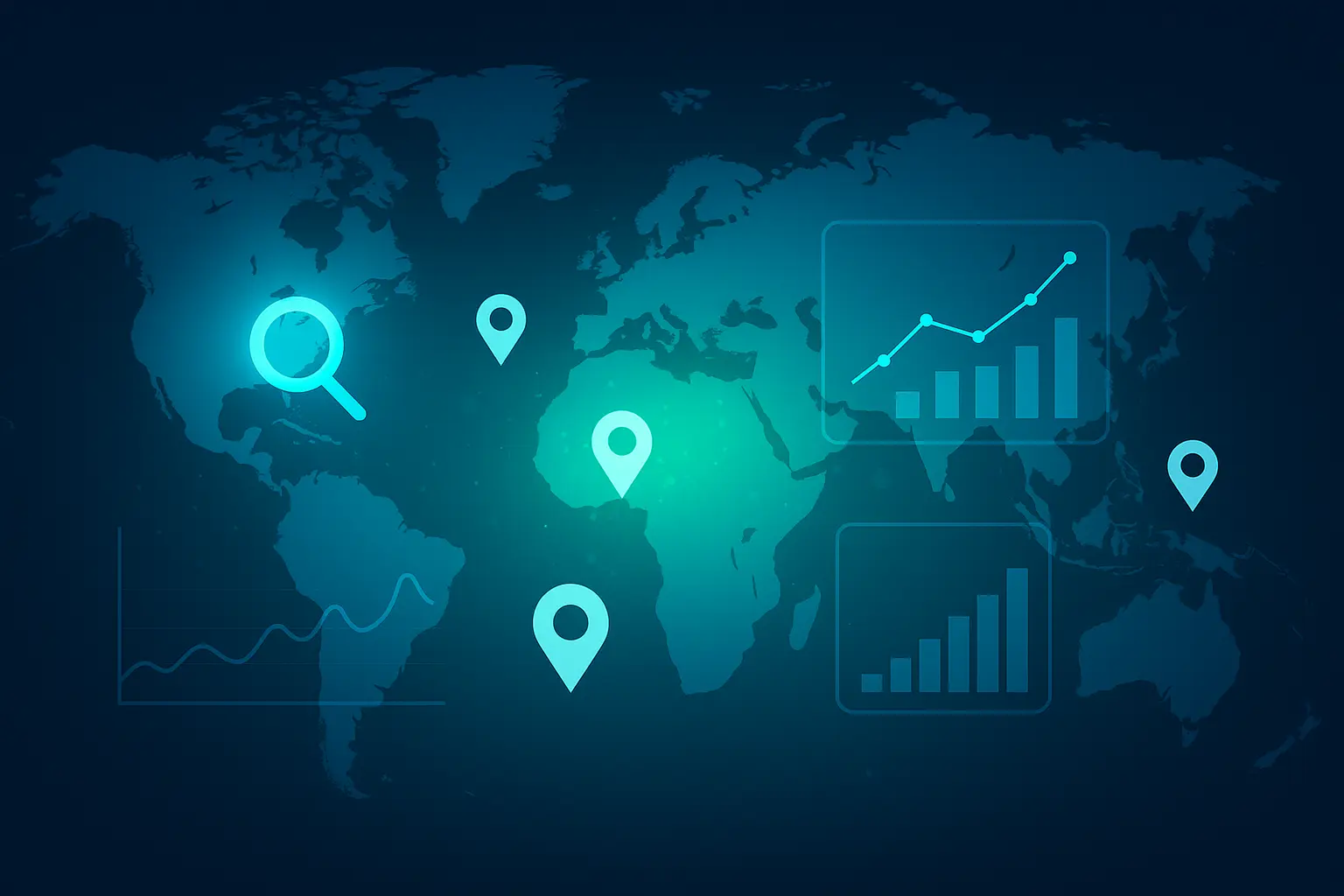In the rapidly evolving landscape of digital marketing, GEO targeting has emerged as one of the most critical strategies in modern SEO. Search engines and AI-powered assistants like Google AI Overview, Bing Copilot, ChatGPT, and Perplexity are increasingly prioritizing local intent and personalized search results. This means that businesses that fail to optimize for GEO signals risk being invisible to their most relevant audience.
In this blog, we’ll explore why GEO targeting is essential in modern SEO, backed by actionable insights, industry trends, and examples that highlight its power in driving visibility, traffic, and conversions.
The Role of GEO Targeting in Modern SEO
Search Engines Are Becoming Location-Aware
Search algorithms have evolved to prioritize location-based search intent. According to Google, nearly 30% of all mobile searches are related to location. Whether someone searches for “best café near me” or “SEO consultant in Mumbai,” GEO targeting ensures businesses appear in front of the right audience at the right place.
AI Answer Engines Depend on GEO Relevance
With AI-powered platforms like ChatGPT, Perplexity, and Bing Copilot reshaping the way users discover information, location-specific signals play an even greater role. These systems extract data from local directories, structured snippets, and Google Business Profiles to deliver personalized recommendations. If your business is not optimized for GEO, you miss visibility in these AI-first experiences.
Why GEO Targeting Matters More Than Ever
1. Increases Local Visibility
By implementing GEO-focused keywords (e.g., “law firm in Delhi,” “Chicago dental clinic”), businesses can rank higher in both traditional search results and AI-generated answers. Local optimization ensures search engines match your site to nearby users actively seeking your products or services.
2. Enhances Click-Through Rates (CTR)
Search results with local intent (like maps, addresses, or “open now” tags) enjoy significantly higher CTRs. BrightLocal’s 2024 survey shows 78% of local mobile searches result in an offline purchase within 24 hours. GEO targeting ensures your brand captures these high-intent clicks.
3. Supports Voice Search Optimization
Modern SEO is heavily influenced by voice search. Phrases like “nearest gym” or “best pizza near me” dominate smart assistants. GEO targeting aligns your SEO with how users naturally speak, increasing your chances of appearing in voice-driven queries.
4. Boosts Conversions with Hyper-Relevance
Hyper-local targeting allows businesses to attract ready-to-convert customers. For example, an e-commerce site offering “same-day delivery in New York” is far more persuasive than a generic offer. GEO-driven relevance translates directly into higher sales and lead conversions.
Best Practices for GEO Targeting in Modern SEO
Optimize Your Google Business Profile (GBP)
- Keep NAP (Name, Address, Phone) details consistent across all platforms.
- Add updated photos, services, and customer reviews.
- Use local categories and attributes relevant to your business.
Implement GEO-Specific Keywords
- Use long-tail phrases like “affordable SEO agency in Bangalore”.
- Incorporate location modifiers in meta titles, descriptions, and headers.
- Leverage tools like SEMrush or Ahrefs for GEO-specific keyword research.
Use Local Schema Markup
Structured data helps search engines understand your location. Adding LocalBusiness schema ensures your business appears in map packs and AI-driven local queries.
Create Hyper-Local Content
- Write blogs about local trends, events, or news (e.g., “Top Restaurants for Diwali in Mumbai”).
- Build landing pages targeting specific cities or neighborhoods.
- Collaborate with local influencers or media outlets for stronger backlinks.
The Future of GEO in Modern SEO
The integration of AI, machine learning, and predictive analytics is pushing GEO targeting to the next level. Google’s AI Overview and Bing Copilot already serve context-aware local recommendations. Businesses that combine geo-personalization, mobile-first indexing, and AI-driven SEO strategies will dominate the next phase of digital discovery.
Conclusion
In modern SEO, GEO targeting is not optional—it’s fundamental. As search engines and AI answer engines prioritize hyper-local, personalized results, businesses must adopt GEO strategies to remain competitive. By optimizing for location-specific keywords, leveraging structured data, and delivering hyper-local content, you can increase visibility, attract ready-to-convert customers, and future-proof your SEO efforts.
If you want your brand to thrive in the era of AI-driven modern SEO, investing in GEO targeting today is the smartest move.





